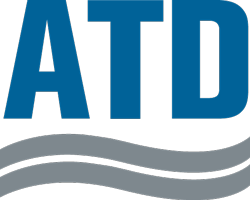
Legislative Affairs
Learn how ATD Legislative Affairs protects and promotes franchised auto and truck dealerships’ interests before Congress.
Two California Air Resources Board (CARB) mandates have had a detrimental impact on truck dealerships and fleets in the state and will lead to national disruptions in the truck market. The Environmental Protection Agency’s (EPA’s) approval of Clean Air Act waivers for California’s Advanced Clean Trucks (ACT) and Omnibus Low Nitrogen Oxide (NOx) regulations allow California and “opt-in” states to enforce their regulations. Ten states (CO, MA, MD, NJ, NM, NY, OR, RI, VT, WA) have adopted California’s ACT zero-emissions vehicle (ZEV) sales mandate which restricts and eventually completely bans the sale of diesel trucks in 2036. All these states except Maryland also follow California’s Omnibus Low NOx regulation, which is expected to add $10,000 for a new Class 8 tractor in California and the opt-in states. Additionally, the rule is contrary to EPA’s own 2027 Low NOx regulation. Due to these regulations, California’s truck sales in 2024 were down 50% compared to 2023 sales. Two states have already begun to feel the impact and have made temporary adjustments. In April, Rep. John James (R-Mich.) introduced H.J.Res. 87 and Sen. Deb Fischer (R-Neb.) introduced S.J.Res. 46 to disapprove the ACT waiver. Rep. Jay Obernolte (R-Calif.) introduced H.J.Res. 89 and Sen. Markwayne Mullin (R-Okla.) introduced S.J.Res. 47 to disapprove the Omnibus Low NOx rule. Members of Congress should support H.J.Res. 87/S.J.Res. 46 to disapprove the ACT Rule and H.J.Res. 89/S.J.Res. 47 to disapprove the Omnibus Low NOx Rule.
Last year, the EPA issued its “Phase 3” rule which requires truck manufacturers to annually increase the percentage of ZEVs they sell. By model year 2032: 60% ZEVs for light-heavy vocational vehicles; 40% ZEVs for medium-heavy vocational vehicles; 30% ZEVs for heavy-heavy vocational vehicles; 40% ZEVs for day cab tractors; and 25% ZEVs for sleeper cab tractors. Last year, only 0.3% of commercial vehicle sales were ZEVs.
The U.S. lacks a national commercial vehicle charging network, which makes adoption of heavy-duty ZEVs impractical. A study released by the Clean Freight Coalition found that electrifying the U.S. commercial truck fleet would cost nearly $1 trillion in infrastructure and grid network upgrades to meet demand. Additionally, the Phase 3 rule estimates that in seven years an electric medium/heavy-duty vocational vehicle will cost only $15,000 more than a comparable diesel vehicle. However, today the cost difference between these vehicles is approximately $258,000. H.R. 2814/S. 711, introduced by Rep. Troy Balderson (R-Ohio) and Sen. Bernie Moreno (R-Ohio), would repeal Phase 3 and require new greenhouse gas standards that are economically practicable and technologically feasible. To preserve customer choice, members of Congress are urged to cosponsor H.R. 2814/S. 711 to stop the partial banning of diesel trucks.
The outdated 12% federal excise tax (FET) on new heavy-duty trucks and trailers is a major barrier to fleet turnover and modernization. First enacted in 1917 to help fund World War I, the tax routinely adds $22,000 or more to a new heavy-duty diesel truck, and $50,000 to an electric or hydrogen fuel-cell truck. New federal emissions and fuel economy mandates have added nearly $40,000 more to the cost of truck. New trucks have made significant environmental gains, such as reducing nitrogen oxide and particulate matter emissions by at least 98%. The FET remains a costly barrier to the purchase of new trucks equipped with the latest environmental technologies. With 39% of the Class 8 trucks on the road today using pre-2010 engines, FET repeal would immediately accelerate fleet turnover and result in major safety and environmental benefits. Last Congress, ATD and eight trucking organizations urged congressional leadership to pass the bipartisan FET repeal bill. Members of Congress are urged to cosponsor H.R. 2424 to incentivize the replacement of older trucks with newer, safer, and cleaner trucks.
Advocates for “right to repair” legislation claim that independent vehicle repair shops do not have access to the parts or data necessary to repair vehicles. However, this concern was rectified years ago, and the information independent shops need to repair vehicles is available from every truck manufacturer. Unlike previous “right to repair” bills, the REPAIR Act (H.R. 1566/S. 1379) has little to do with repairing a vehicle. Instead, the bill would compel truck manufacturers to provide any “aftermarket parts manufacturer” the information necessary “to produce or offer compatible aftermarket parts,” i.e., parts not made by the truck manufacturer. This legislation would also give any third party unfettered access to data from vehicles, which raises privacy, vehicle security, and safety concerns. The bill is also overly broad as it regulates heavy-duty vehicles the same as light-duty vehicles. Last Congress, the ATD Board of Line Representatives sent a letter to House Energy and Commerce Committee leaders opposing similar legislation. Members of Congress are urged not to cosponsor H.R. 1566/S. 1379.
ATD Legislative Issue Briefs
Grassroots
When lawmakers learn about your business and employees, they become better informed about how their decisions affect your ability to serve customers and grow your business.
Find Your Members of Congress
About Legislative Affairs
Learn how NADA Legislative Affairs protects and promotes franchised auto and truck dealerships' interests before Congress. Find the latest legislation affecting the automotive retail industry, including issues such as auto finance, tax policy, vehicle commerce, fuel economy and the environment, as well as grassroots.



